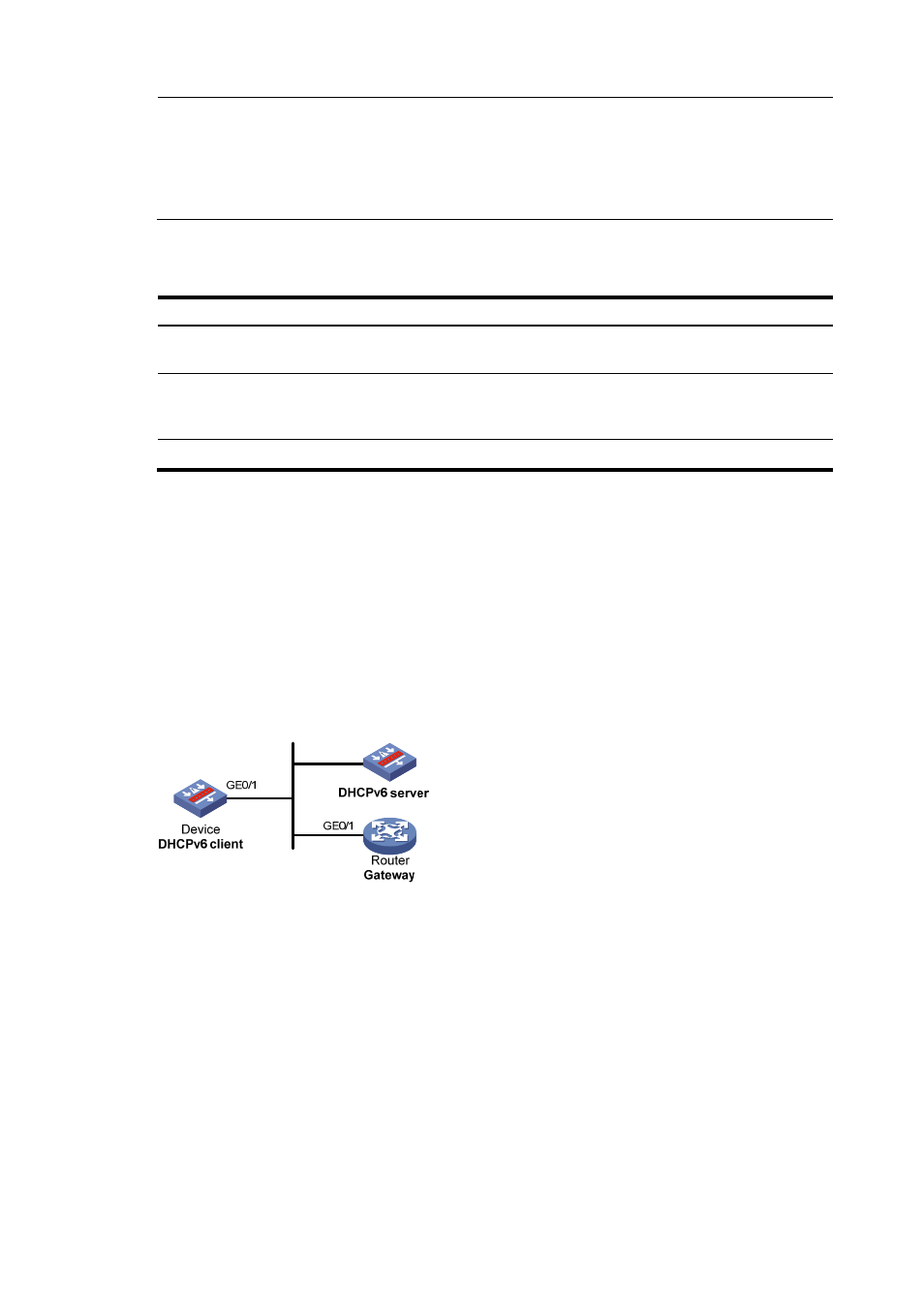Displaying and maintaining the dhcpv6 client, Stateless dhcpv6 configuration example, Network requirements – H3C Technologies H3C SecPath F1000-E User Manual
Page 98: Configuration procedure

2
NOTE:
•
For more information about the ipv6 address auto command, see
IPv6 Basics Commands in the IP
Services Volume.
•
It is not recommended that you enable the DHCPv6 server, DHCPv6 client and DHCPv6 relay agent on
the same interface.
Displaying and Maintaining the DHCPv6 Client
To do…
Use the command…
Remarks
Display DHCPv6 client information
display ipv6 dhcp client [ interface
interface-type interface-number ]
Available in any view
Display DHCPv6 client statistics
display ipv6 dhcp client statistics
[ interface interface-type
interface-number ]
Available in any view
Display the DUID of the local device
display ipv6 dhcp duid
Available in any view
Stateless DHCPv6 Configuration Example
Network requirements
Through stateless DHCPv6, the device obtains the DNS server address, domain name, and other
information from the DHCPv6 server.
The router acts as the gateway to send RA messages periodically.
Figure 12 Stateless DHCPv6 configuration
Configuration procedure
Step1
Configure the router
# Enable the IPv6 packet forwarding function.
[Router] ipv6
# Configure the IPv6 address of GigabitEthernet 0/1.
[Router] interface gigabitethernet 0/1
[Router-GigabitEthernet0/1] ipv6 address 1::1 64
# Set the O flag in the RA messages to 1.
[Router-GigabitEthernet0/1] ipv6 nd autoconfig other-flag
